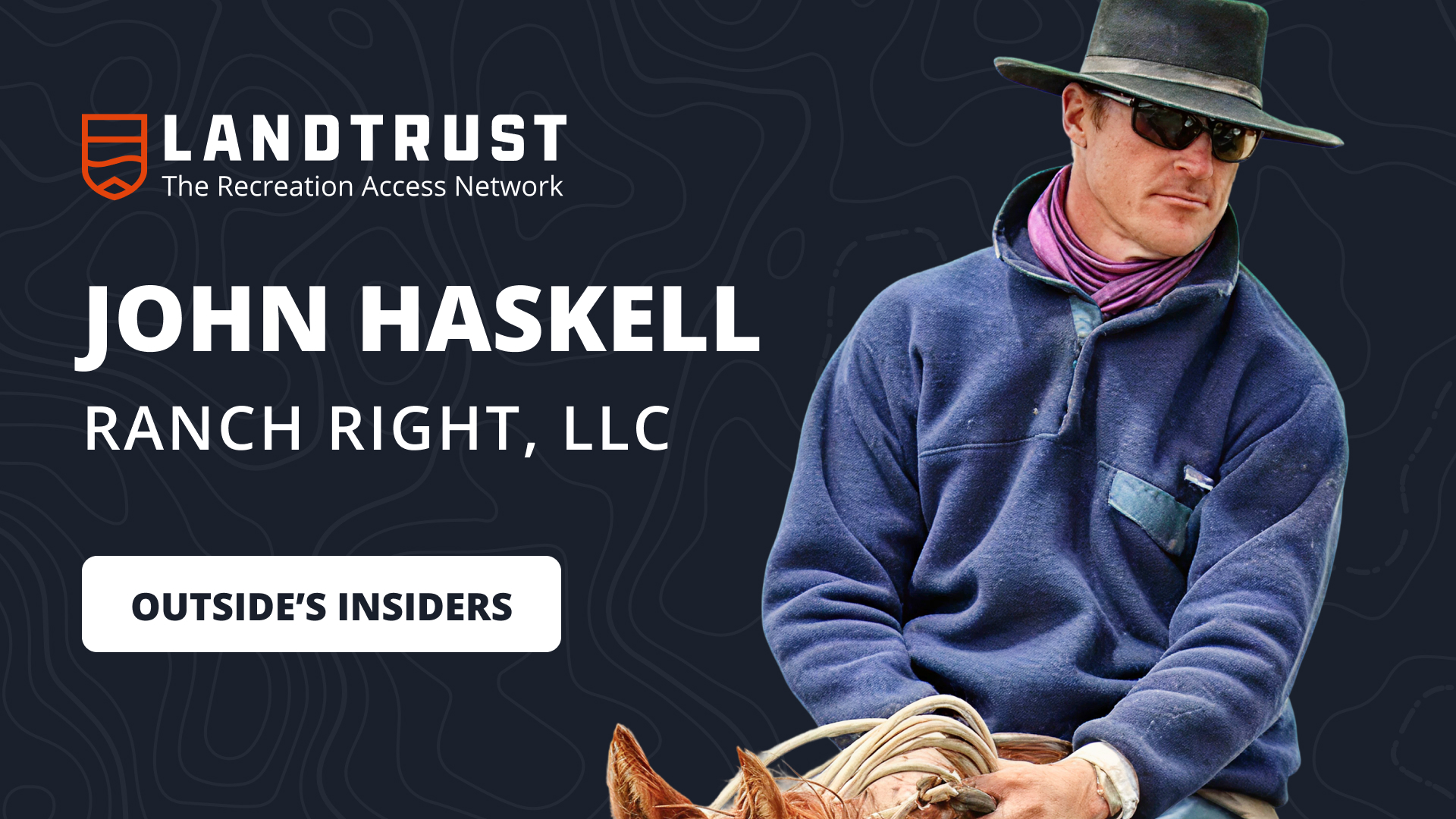Outsider Insiders: John Haskell on Ranching, Profitability, and Protecting America’s Working Lands
“When land does well for its owner and the owner does well by his land, we have conservation.” – Aldo Leopold
For John Haskell, founder of Ranch Right, LLC, this principle isn’t just philosophy — it’s the foundation of his life’s work. In Episode 15 of the LandTrust Podcast, John joins Nic De Castro for a candid conversation about the business of ranching, why profitability is inseparable from stewardship, and what’s at stake if America’s agricultural lands can’t sustain families, wildlife, and communities.
A Different Kind of Insider
Unlike many guests in the Outsider Insiders series, John isn’t building outdoor gear or digital platforms. His work goes deeper, to the very ground beneath our boots. With nearly 70% of the lower 48 privately owned and more than 900 million acres in agricultural hands, the future of outdoor recreation depends directly on the viability of working farms and ranches.
John knows this firsthand. Early in his career, he witnessed struggling ranches where families fought to stay afloat and landscapes suffered. But then he saw something different — ranches that paired sound land management with solid financial systems. They weren’t just surviving; they were thriving, building wealth, nurturing resilient families, and enhancing wildlife habitat. That realization reshaped his path.
Busting the Myth: Profitability vs. Stewardship
A persistent misconception hangs over agriculture: that profitability comes at the land’s expense. John flatly rejects this.
“There’s this terrible myth that in order to be profitable we have to degrade the land. In fact, it’s exactly the opposite.”
From his work with institutions like the LDS Church’s Deseret Land and Livestock to private family ranches across the West, John has seen the proof: when financials and management align, profits grow and landscapes improve. Healthy grass, abundant wildlife, and thriving communities aren’t accidents — they’re the product of businesses that understand both ecology and economics.
The Cost of Getting It Wrong
So what happens when ranches aren’t profitable? The consequences ripple far beyond a single family’s balance sheet. Land gets sold. Communities shrink. Wildlife habitat vanishes under subdivisions and roads.
And for those of us who love the outdoors, the stakes are high. As Nic notes, “Once something’s developed, I’ve never seen it get undeveloped.” For hunters, anglers, and anyone who cherishes open space, every ranch that fails represents a loss that’s effectively permanent.
Reframing Wildlife as an Asset
In the West, tensions often flare between landowners and the broader outdoor community. Hunters see large ranches and assume exclusion; landowners see elk herds eating thousands of dollars of hay.
John urges a reframing: wildlife can be a liability unless it’s integrated into the business model. Programs like Utah’s CWMU or LandTrust’s short-term access marketplace help flip the script, turning elk and deer from burdens into benefits. That shift not only supports landowners financially but also forges new connections between producers and the 99% of Americans who don’t farm or ranch.
RanchRight’s Mission: Teaching the Missing Piece
At the heart of John’s work today is education. Ranch Right specializes in what many operations overlook: financial literacy.
Ranchers may be skilled grazers, breeders, or land managers, but without a clear financial picture, it’s nearly impossible to steer the business long-term. Through consulting, webinars, and the Ranch Genomics podcast, John and his team equip families with the tools to understand cash flow, manage debt, and make decisions that secure their operations for future generations.
Because at the end of the day, a ranch that can’t pay its bills can’t preserve its land.
Why This Conversation Matters
For outdoor enthusiasts, it’s easy to view ranches simply as backdrops for recreation. But as John reminds us, they’re much more:
- They’re habitat for the elk, deer, and birds we pursue.
- They’re community anchors, keeping rural towns alive.
- And they’re family legacies, where generations learn resilience, responsibility, and stewardship.
Protecting those values requires ensuring that the people working the land can succeed as business owners. That’s why conversations like this — bridging the gap between producers and recreationists — are essential.
Connect with John Haskell
To learn more about Ranch Right’s mission and resources for agricultural landowners, visit ranchrightllc.com or find them on Instagram, Facebook, and LinkedIn.

